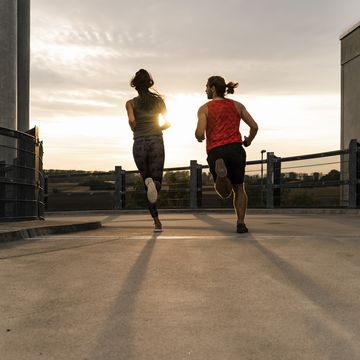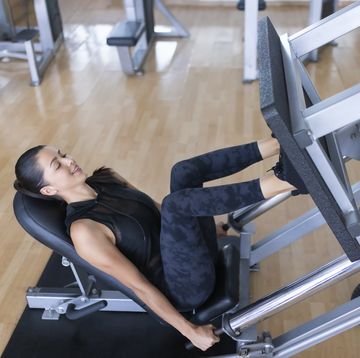Shifts in daily routine, WFH and the opportunity to run more can coronavirus lockdown, we have been warned about the importance of keeping our bodies active, for both our mental and physical well-being.
Many of us have taken the opportunity, using the newly found free time, to pick up running and doing home workouts. However, with the benefits of exercising more also come some risks.
Dr Matthew Jackson, professor in Sport and Health Science at the Liverpool Hope University, says that while physical activity can provide a timely boost to the body’s ability to fight viruses and infections, over-doing it could lead to the opposite result.
‘It’s really important that people do exercise during lockdown. But if you’re finding yourself doing more of it because you’ve got more time on your hands, you need to be mindful about not doing too much,’ he says.
Dr Jackson explains that exercise can improve antibodies, which help identify an infection causing pathogen like a virus, and white blood cells or lymphocytes, which engulf and destroy the foreign cells in the body.
However, recent research found that levels of different immunoglobulins and lymphocytes were found to be lower after vigorous exercise. Prolonged bouts of vigorous aerobic activity could also lead to immunosuppression, as these cells are redistributed and diverted to key tissues and organs active during exercise, rather than elsewhere in the body.
We spoke to Strava athlete and running coach, Ben Parkes, about recognising symptoms of overtraining and what the best practices are to avoid over-doing your workout, here’s what he told us.
How do I know I am overtraining?
- Experiencing constant muscle soreness (DOMS) and slow recovery between runs could be a sign of overtraining. Remember, you shouldn’t feel sore when starting your next run.
- If you are noticing that for some of the runs you’ve been used to doing, there’s a higher perceived effort or a higher than usual heart rate over similar runs, then this is also a sign that you may be overtraining.
- Best winter running gear
- reasons why you should be deadlifting
How do I avoid overtraining?
1. Follow a varied training programme
Training with a plan that has a wide variety of different paced runs and different intensities is key to avoid overtraining. If you are a new runner you might be tempted to just head out and run the same moderately hard pace on all your runs but having a balance of intensities throughout the week will vastly reduce the stress on the body and allow you to build mileage safely.
2. Lower intensity
There is sometimes a sense that when doing intervals or hills, we need to be maxing out at 100% effort on our repeats but that is absolutely not necessary. We shouldn’t be running ‘flat out’. So, keep things controlled and focus on hitting constant pace reps and finish the session feeling strong.
3. Nutrition
It may seem obvious but having a balanced diet will help with recovery and avoid symptoms of overtraining. Whole-grains, fresh fruit and vegetables, with a balance of protein, carbohydrates and healthy fats, are the way to go for a healthy diet and well-balanced lifestyle.
4. Recovery
Resting and listening to your body is essential to any training plan. If you see some of the symptoms, and feel that your body is feeling unusually tired, take a few days off. This is when your body adapts so you need to give it a chance to absorb the training you’ve been doing. Remember most of us can take around 7 days off before any drop in fitness occurs. As running is full weight bearing, it puts a big strain on the body, so you could substitute it for some cross training like yoga, for example.
Ben Parkes, is a running coach and athlete, you can find him on www.benparkes.com and on Strava.













